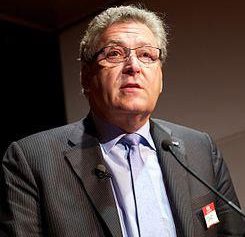The conflict between the European Commission and Poland and Hungary
could be the greatest challenge awaiting Brussels in the new year.
According to Jon Henley, reporting for the Guardian, the two former communist bloc countries face the risk of becoming the EU’s “first rogue states”.
“How Europe deals with members deliberately flouting the core western liberal norms and values it strives to embody – social tolerance, respect for free speech, an independent judiciary – could dominate 2018 far more than Britain’s exit,” Henley wrote.
In December, Brussels triggered Article 7 of the EU Treaty against Poland over changes to the judiciary by the country’s ruling conservatives. The mechanism could ultimately lead to Poland losing its EU voting rights.
In the same month, the European Commission referred Hungary to the European Court of Justice over Viktor Orban’s “ongoing assault on political freedoms”.
Both governments have also met with criticism for refusing to take in refugees.
While the formal warning to Poland – which could strip the country of its EU voting rights, seems unlikely because it requires a unanimous vote of all member states, calls to make EU funds conditional on upholding the rule of law are more real.
Poland and Hungary are among the largest net recipients of EU funds. Countries such as Germany, France and the Nordic states support this approach.
Note EU-Digest: Like Britain, Hungary and Poland seem to think that you can have your cake and eat it also in the EU. "That is not the way the cookie crumbles".
“How Europe deals with members deliberately flouting the core western liberal norms and values it strives to embody – social tolerance, respect for free speech, an independent judiciary – could dominate 2018 far more than Britain’s exit,” Henley wrote.
In December, Brussels triggered Article 7 of the EU Treaty against Poland over changes to the judiciary by the country’s ruling conservatives. The mechanism could ultimately lead to Poland losing its EU voting rights.
In the same month, the European Commission referred Hungary to the European Court of Justice over Viktor Orban’s “ongoing assault on political freedoms”.
Both governments have also met with criticism for refusing to take in refugees.
While the formal warning to Poland – which could strip the country of its EU voting rights, seems unlikely because it requires a unanimous vote of all member states, calls to make EU funds conditional on upholding the rule of law are more real.
Poland and Hungary are among the largest net recipients of EU funds. Countries such as Germany, France and the Nordic states support this approach.
Note EU-Digest: Like Britain, Hungary and Poland seem to think that you can have your cake and eat it also in the EU. "That is not the way the cookie crumbles".

